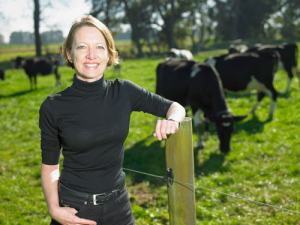Amongst the more enjoyable things to see in this world is the enthusiasm and commitment shown by younger members of society to something they believe in.
It might be the school play, or their sporting team. It might be dinosaurs, the night sky or recycling… whatever, their fascination draws in others, particularly parents and grandparents.
When the focus of their enthusiasm and commitment is the primary sector, it is not just their family that gets involved, it is the whole industry. This has been apparent at two national events in the last couple of months.
The Royal Agricultural Society Rural Ambassador was chosen in Wanaka at the end of June, and the FMG Young Farmer of the Year Competition was held in Manawatu at the beginning of July.
For three days seven contestants in the Young Farmer Competition, each of whom had won at club, district and regional finals, battled themselves and each other in physical and mental challenges testing all aspects of what it takes to be a farmer – and in particular, a New Zealand farmer. Not for us the subsidies of the northern hemisphere, or the specialities available in the huge corporate farms in the US or Canada. In NZ ‘number 8 wire’ is synonymous with attitude and ‘can do’.
Over the years, the competition has developed, testing business analysis and human resource management, and the practical side. Ideas are examined as well, and this year it was noticeable that environment was at the fore.
Each of the business proposals in the Agmardt Agribusiness Innovation challenge featured the environmental aspects of the plan. Certainly the spending required, the risks and the possible profit, plus the timeframe involved, had been evaluated, but in all cases a main thrust of the proposal was environmental savings; whether through genetic engineering, a new chemical application system, animal number reduction, integrated management system or improved welfare, it was the environment that benefitted as well as the bottom line.
A similar theme was apparent at the Royal Agricultural Society Rural Ambassador selection. The six finalists had emerged top in their regions, and though the final process was not as physical as in the Young Farmer Competition, it was a gruelling day of interviews and then speeches. Particularly strong in this competition was the emphasis on engagement with urban counterparts, environmental perceptions and encouragement of youth.
At both competitions support for the competitors was palpable. Many generations – children, parents, grandparents, on farm, in industry and from policy and education – were present, despite both finals coinciding with All Blacks test matches against the Lions.
Wellbeing Statistics 2017, released by Statistics New Zealand last month, helps to explain why: agriculture and farming matter in defining NZ.
Most NZers are satisfied with life: about 83% rate their overall satisfaction as 7 or above on a 0-10 scale. We have a strong sense of belonging (8.6) and value ‘freedom, rights and peace’ and ‘natural scenery and environment’ highly (9.1). People in NZ rated 8.5 and ‘agriculture and farming’ 8.2. Six other categories, including sport (7.8) and art and artistic achievements (6.9) rated below agriculture and farming.
Of particular note is that within the age group breakdown at least quarter of the 15-24-year-olds gave agriculture and farming a 10 out of 10 rating in defining NZ. The environment was their highest score (almost half gave it a 10). In comparison, about 40% of over 65-year-olds rated agriculture and farming 10/10, and about 57% rated natural scenery and the environment a 10.
All generations recognise that both environment and agriculture are important in defining NZ.
The primary sector is the foundation for the export economy. The StatsNZ report indicates that the older people recognise this and value its contribution. So do at least some of the younger generation. And from the enthusiasm and commitment seen recently, NZers can be heartened that the future is in good hands; economy, environment and education are the foundation.
- Jacqueline Rowarth is chief scientist at Environmental Protection Authority and was involved in assessing and interviewing in both competitions



















